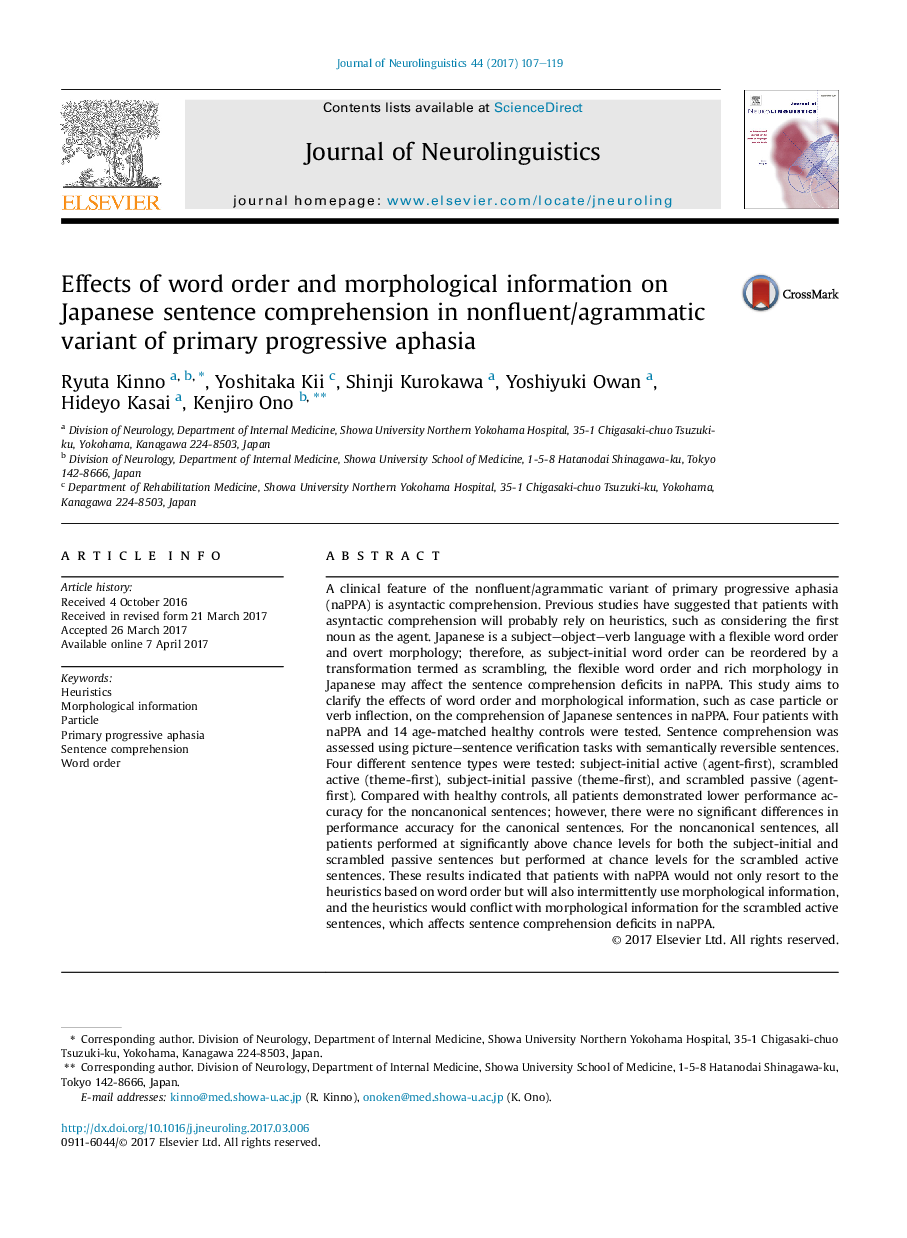| کد مقاله | کد نشریه | سال انتشار | مقاله انگلیسی | نسخه تمام متن |
|---|---|---|---|---|
| 5039251 | 1473164 | 2017 | 13 صفحه PDF | دانلود رایگان |

- The effects of word order and morphological information in naPPA were examined.
- Heuristics based on word order affects sentence comprehension in naPPA.
- Patients can use morphological information such as case particle or verb inflection.
- Conflict between two types of information affects sentence comprehension deficits.
A clinical feature of the nonfluent/agrammatic variant of primary progressive aphasia (naPPA) is asyntactic comprehension. Previous studies have suggested that patients with asyntactic comprehension will probably rely on heuristics, such as considering the first noun as the agent. Japanese is a subject-object-verb language with a flexible word order and overt morphology; therefore, as subject-initial word order can be reordered by a transformation termed as scrambling, the flexible word order and rich morphology in Japanese may affect the sentence comprehension deficits in naPPA. This study aims to clarify the effects of word order and morphological information, such as case particle or verb inflection, on the comprehension of Japanese sentences in naPPA. Four patients with naPPA and 14 age-matched healthy controls were tested. Sentence comprehension was assessed using picture-sentence verification tasks with semantically reversible sentences. Four different sentence types were tested: subject-initial active (agent-first), scrambled active (theme-first), subject-initial passive (theme-first), and scrambled passive (agent-first). Compared with healthy controls, all patients demonstrated lower performance accuracy for the noncanonical sentences; however, there were no significant differences in performance accuracy for the canonical sentences. For the noncanonical sentences, all patients performed at significantly above chance levels for both the subject-initial and scrambled passive sentences but performed at chance levels for the scrambled active sentences. These results indicated that patients with naPPA would not only resort to the heuristics based on word order but will also intermittently use morphological information, and the heuristics would conflict with morphological information for the scrambled active sentences, which affects sentence comprehension deficits in naPPA.
Journal: Journal of Neurolinguistics - Volume 44, November 2017, Pages 107-119